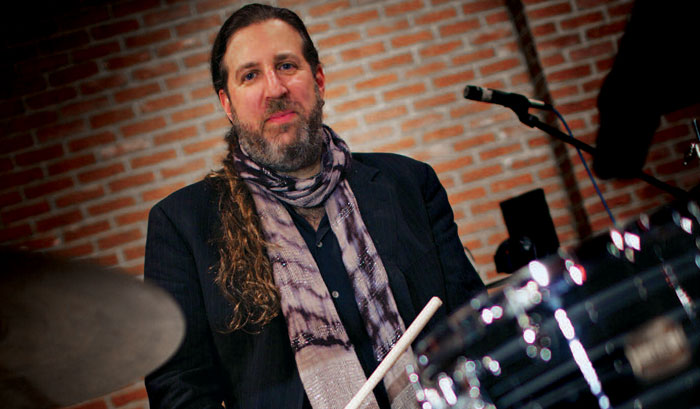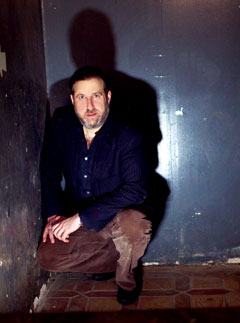


"Music is people, playing together," says drummer Aaron Comess. "My favorite music has always resulted from different players with different styles coming together to create unique sounds and grooves."
That reverence for human feel has defined Comess's style since his band, the Spin Doctors, exploded onto the scene with their mega-platinum 1991 debut, Pocket Full of Kryptonite. At the time, they were one of several high-profile bands emphasizing unvarnished, real-time playing in reaction to the slick drum-machine grooves of the previous decade. Aaron still brings that sensibility to every project, from the band's recent reunion tour to his sideman work with such artists as Edie Brickell and Joan Osborne, not to mention two groove-approved solo albums.
"Right when the Spin Doctors came out was a great time for rock music," he reflects. "Bands like Nirvana helped bring a more organic approach to recording and producing. It got a bit sterilized again later in the '90s - for a while there, everything had to have a loop in it. But whenever music becomes sterilized, people eventually remember that it's the human feel that makes music come alive."

Aaron counts himself fortunate to have found success both as a band member and a session player. "It's two different mentalities," he says. "In some ways, being in a band you like is the ultimate situation. It's a great avenue to developing a style. On the other hand, it's great to play many kinds of music with different musicians, and you learn a lot when you have to adopt your style to suit an artist. I guess I try to keep a bit of the band mentality whenever I work as a hired gun. I've always been attracted to the energy that bands have. That's why I love band drummers like John Bonham, Charlie Watts, Ringo Starr, and Levon Helm."
Yet Aaron's greatest drumming influence is session legend Bernard Purdie, famed for his work with Aretha Franklin and Steely Dan. "I've loved his playing since I was in high school in Texas, and I had the pleasure of studying with him when I first moved to New York City, right around the time the Spin Doctors formed. I was so attracted to his hard, groove-oriented playing. It was really tight, but also greasy and loose. Now, listening to Kryptonite 20 years later, I'm reminded how much he influenced my playing." Comess recently reconnected with Purdie when he subbed for his former teacher as the pit drummer in the Broadway revival of Hair.
Another ongoing role model is session titan Steve Gadd. "Steve always floors me," says Aaron. "I love how he's matured and grown over the last 30 years. He's always been a huge influence, and he's played Yamaha drums forever. In fact, he's the reason I bought my first Yamaha kit when I was 16. It's a black Recording Series kit that sounds incredible to this day. Those were some of the best drums ever made."
Whenever music becomes sterilized, people eventually remember that it's the human feel that makes music come alive.
Aaron's current favorite kit is a Yamaha Club Custom. "I got it right before the last Spin Doctors tour, and I've been using it in the studio. These drums have a really rich, warm tone, and they're just beautiful. I have a 22" kick, a 16" floor tom, and 12" and 13" rack toms. I usually use just one rack tom, but I switch between the two sizes, depending on the song I'm recording. They're beautiful drums! I have the Club Custom snare, plus a bunch of other Yamaha snares, including a 6" Maple Custom and an 8" copper snare. They all sound great, and I switch between them from song to song."
Aaron's years with the Spin Doctors, extensive session work, and experiences producing two solo discs (the latest is last year's Beautiful Mistake) have given him strong opinions about producing drum tracks.
"I don't have any problem with digital recording technology," says Comess. "Digital editing can be very creative and cool. But it bothers me when you get together a great rhythm section, record a great take, and then see them cutting everything to the grid. I don't like turning on Top 40 radio and hearing Beat Detective on all the drums and Auto-Tune on all the vocals. That approach has destroyed a lot of what you hear on the radio. That's what's great about a new artist like Adele. It sounds so organic, and it's the biggest record of the year. It tells me that people really do like to hear real, honest, soulful music."
(Photography Credit: Brett Winter Lemon)
























